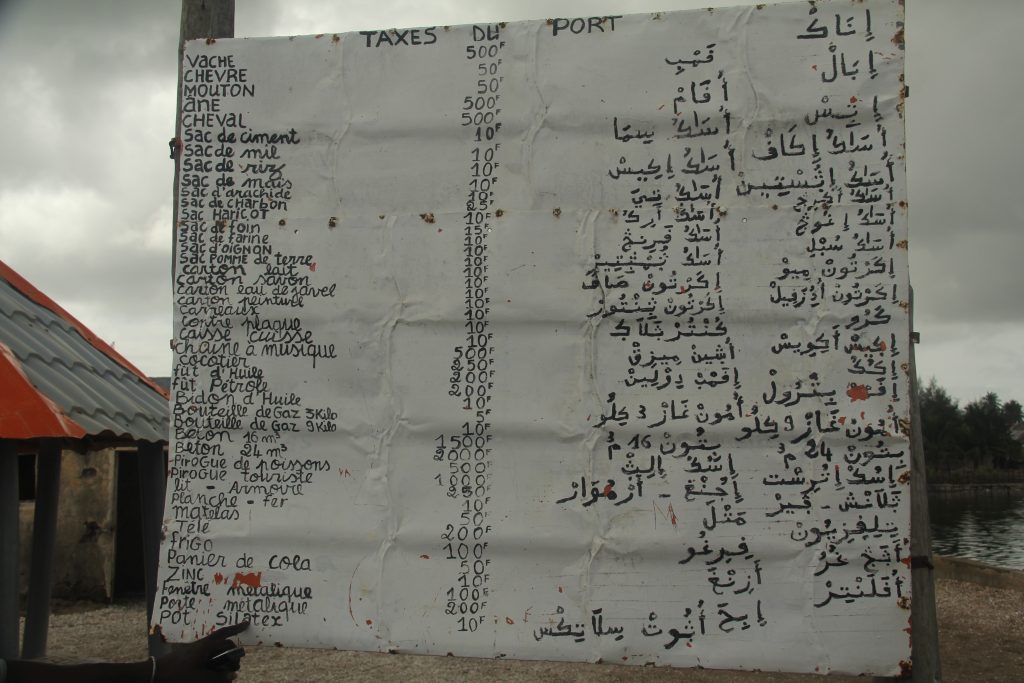Trans-Saharan Literacies: Writing across the Desert
Fiona Mc Laughlin
NEH Fellow 2019-2020
[FEL-262387 African Writing Traditions in the Trans-Saharan World]
This project brings a sociolinguistic perspective to two writing traditions used by populations within and adjacent to the Sahara desert, to argue for the conceptualization of a trans-Saharan world of shared historical, religious, and linguistic influences. By showing these vernacular literacies to be robust everyday practices in many African societies, and by tracing their transmission and spread through pathways of Islamization, Islamic education, and pastoralist traditions, I strengthen the case for positing a trans-Saharan sphere of influence. This project contributes to an emerging strand of interdisciplinary research that questions the construction of the Sahara in scholarship, the colonial archive, and the popular imagination, as a barrier that has separated, among other things, the Maghreb from sub-Saharan Africa, White from Black, Muslim from “pagan,” and Arab from African. Based on historical currents of societal exchange, Islamization, and colonialism within the region, I formulate the Trans-Sahara as consisting of the three countries of the Maghreb (Morocco, Algeria, Tunisia), the West African Sahel (Senegal, Mali, Niger), and the Saharan country of Mauritania.
The two writing traditions I study are ajami, or the writing of African languages in the Arabic script, and tifinagh, a more restricted yet ancient and distinctive literacy used to write Berber languages such as Tashelhiyt in Morocco and Tamasheq in Mali and Niger. My project engages in particular with the study of vernacular or “grassroots” literacies, so-called informal ways of writing that flourish independently of the dominant regime of literacy imposed by the colonial and postcolonial state through public education, and my focus on everyday literacy provides a counterpoint to the colonial construction of Africa as the ‘oral continent.’ As alternatives to the official francophone or arabophone regimes of language in the Trans-Sahara, ajami and tifinagh are counter-hegemonic literacies that constitute important writing practices for many Africans, even though they are generally overlooked in surveys of literacy in Africa. The choice of a writing system carries social meaning, and linguistic plurality, including multiple ways of writing, can be an active and useful strategy for participating in social life, including political and ideological contestation.
Upcoming related talks:
‘Vernacular writing in the trans-Sahara.” University of Florida Linguistics Department Seminar. February 24, 2020 at 3pm. Florida Gym FLG 0260.
“The words the desert holds.” To be presented at the workshop and public symposium Desert Futures: Sahara. Whitney Humanities Center, Yale University. New Haven, CT. April 24-26, 2020.
Related publications:
Mc Laughlin, Fiona. 2018. In press. “Ajami writing practices in Atlantic-speaking Africa.” In Friederike Lüpke, ed. The Oxford Guide to the Atlantic Languages. Oxford University Press. Click here to access.
Mc Laughlin, Fiona. 2015. “Linguistic warscapes of northern Mali.” Linguistic Landscape 1(3):213-242. Click here to access.
Related podcast:
La sociolinguistique de l’écrit dans le trans-Sahara. From a talk I gave at the Centre d’Études Maghrébines en Algérie in Oran in April, 2018. [In French]. Click here to access.

